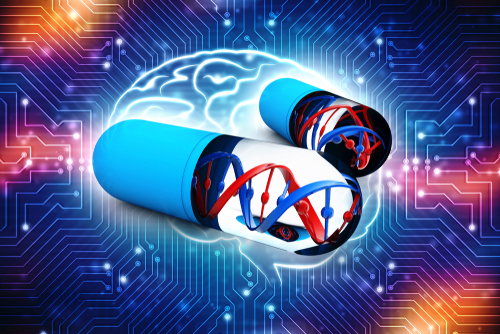PTC Therapeutics Advances Gene Therapy for AADC Deficiency

PTC Therapeutics plans to request approval for its GT-AADC gene therapy, developed for the treatment of aromatic L-amino acid decarboxylase (AADC) deficiency, in the United States.
Supported by positive data from clinical studies, the company expects to submit a biologics license application (BLA) with the U.S. Food and Drug Administration (FDA) for GT-AADC this year.
“We are impressed with the clinical results shown by the AADC program and are excited with the potential to quickly bring this therapy to patients,” Stuart W. Peltz, PhD, CEO of PTC Therapeutics, said in a press release.
AADC deficiency is a rare genetic disorder that affects the central nervous system. It is caused by reduced levels or lower activity of the AADC enzyme, because of mutations in the DDC gene. Severe cases are characterized by lack of motor control and generalized low muscle tone and strength, which hampers breathing, feeding, and swallowing.
The GT-AADC gene therapy was initially developed by Agilis Biotherapeutics, which was acquired by PTC Therapeutics in July 2018. It was specifically designed to reverse the effects of the DDC gene mutations and increase levels of functional AADC enzyme in target areas of the central nervous system.
The therapy uses a safe version of adeno-associated virus to deliver the correct DNA sequence of the human AADC enzyme, and overcome the defect that characterizes AADC deficiency.
The potential of GT-AADC has been assessed in two clinical studies conducted at the National Taiwan University Hospital.
In a Phase 1/2 trial (NCT01395641) researchers treated 10 children, age 2 and older, who had severe AADC deficiency. The gene therapy was injected once directly into the putamen area of the brain (which is most affected in the disease) through two small holes made on each side of the skull.
In an ongoing Phase 2b trial (NCT02926066), researchers are testing two dosages of GT-AADC in patients younger than 3.
Clinical data of the first 18 children with severe AADC deficiency treated with a single administration of GT-AADC gene therapy were presented at the American Society of Gene and Cell Therapy (ASGCT) 2018 Annual Meeting, in the poster, “Gene Therapy for AADC Deficiency Results in De Novo Dopamine Production and Supports Durable Improvement in Major Motor Milestones.”
The children, between 21 months and 8.5 years old, had not developed full head control, and were unable to sit or stand unassisted, consistent with severe AADC.
After receiving the gene therapy, they experienced significant improvement. Of the 15 patients followed for over two years, five gained full head control, four were able to sit unassisted, and one was able to stand with support.
At five years, two of seven patients were able to walk using wheeled walkers, another was able to take steps holding an adult’s hand, and one child was able to walk independently.
In general, the children showed clinically meaningful and statistically significant increases in motor function over time, as measured by the Peabody Developmental Motor Scale (PDMS-2) and the Alberta Infant Motor Scale (AIMS).
“These findings indicate that gene therapy with GT-AADC is a potential therapeutic for patients with AADC deficiency to achieve and maintain motor milestones,” researchers stated.
In another poster, “Improvement of Motor and Cognitive Function by Gene Therapy for Patients with AADC Deficiency,” researchers presented the cases of five AADC deficiency patients who were treated with GT-AADC.
Two years after receiving the gene therapy, the patients showed significant motor improvements, with sustained production of AADC enzyme in the brain. One patient with moderate disease also showed remarkable improvement in cognitive and speech functions.
“The restoration of dopamine production in the putamen [mediated by increased levels of AADC enzyme] may have broader effects depending on the patient age at treatment and genetic severity,” researchers said.




